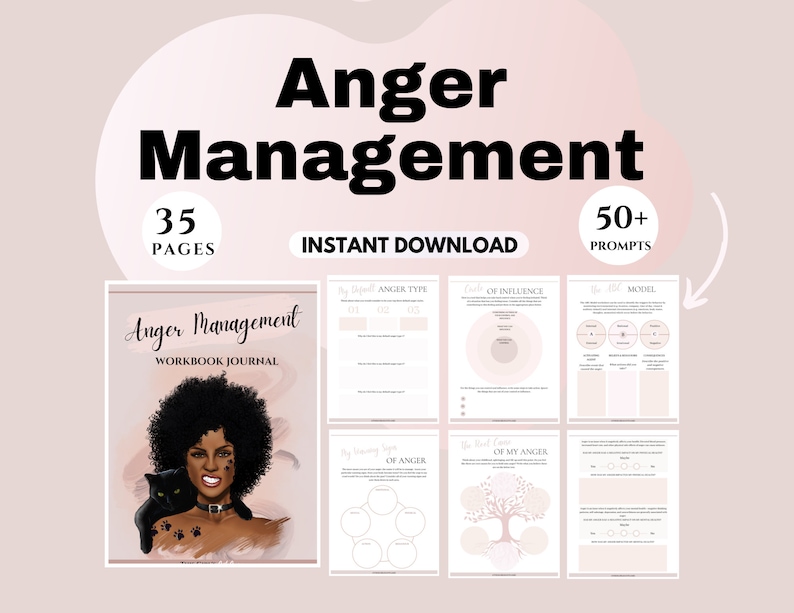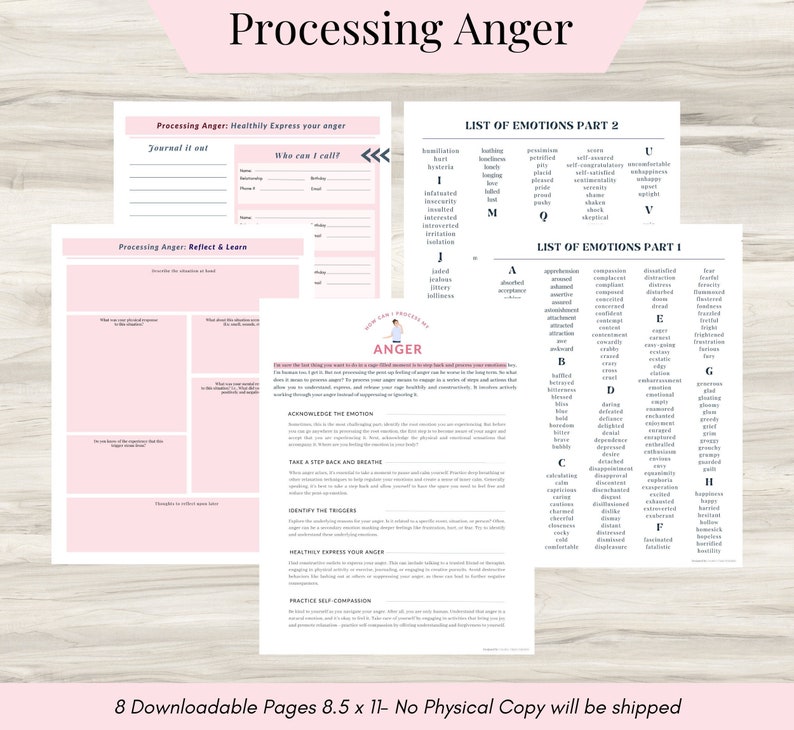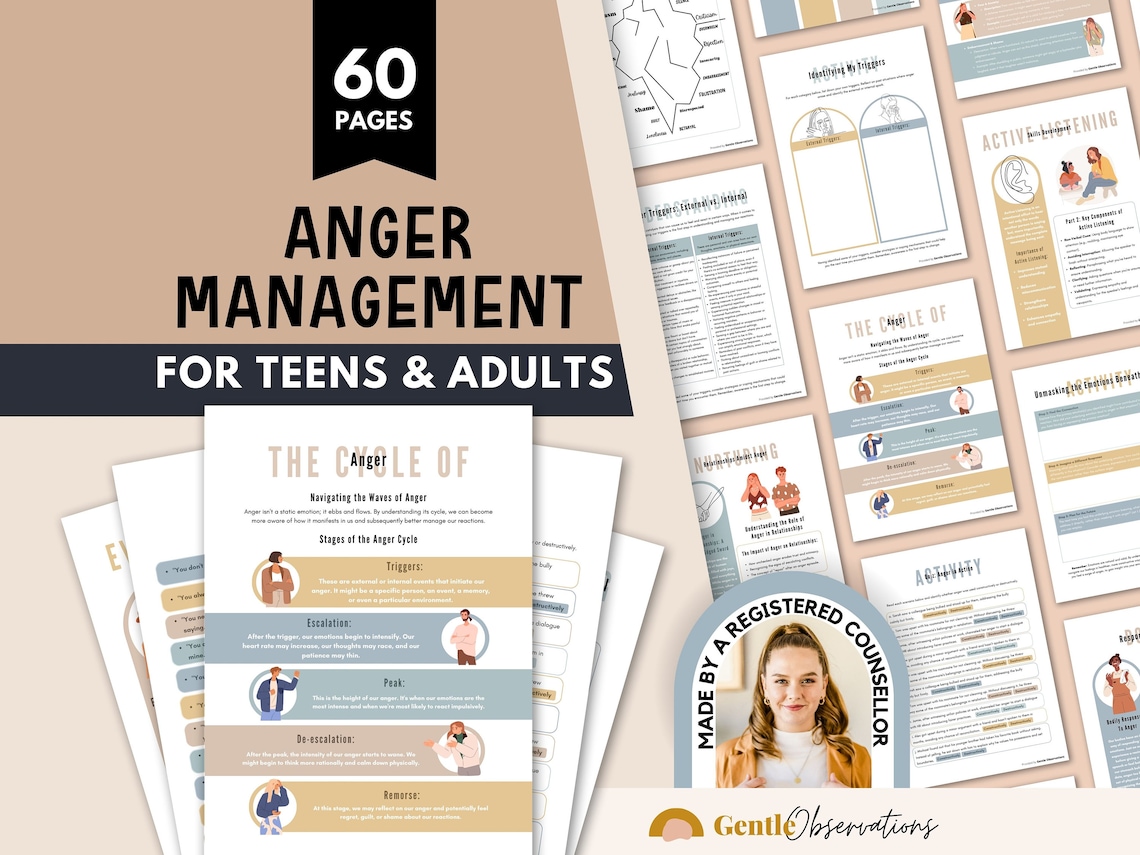With so many parenting styles, parenting any child can be a fun, exciting, confusing, and frustrating thing with and without the support of your partner, family, and friends. Among the myriad emotions that parents experience, anger is one of the most complex and difficult to manage. If not addressed properly can hurt not only you but the child as well and we both don’t want that. When you understand your own emotions as a parent it just makes it way easier to maintain a loving healthy relationship between you and your child. So I’m going to share with you the best practical advice and insights to help parents navigate their emotions constructively.
Understanding Parental Anger
Well, what is anger? Anger is a natural human emotion, and parents are not exempt from experiencing this emotion either. It can arise from various sources, such as stress, exhaustion, unmet expectations, and feeling overwhelmed by parenting responsibilities. Recognizing the root causes of anger is the first step toward managing it effectively.
Common Triggers of Parental Anger
- Fatigue and Sleep Deprivation: Parenting often involves many sleepless nights and relentless demands from your spouse and child, leading to physical and mental exhaustion.
- Unmet Expectations: Parents may have high expectations for their children’s behavior and achievements whether it’s them getting on the A/B Honor roll, doing good in sports, or learning a new task, which will only cause anger leading to frustration when these expectations are not met.
- Stress and Overload: Balancing work and even when working from home, household responsibilities, and parenting can be overwhelming, increasing stress levels.
- Child’s Behavior: Constant tantrums, disobedience, and other challenging behaviors can provoke anger in parents.
- Lack of Support: Feeling isolated or lacking support from a partner, family, or community can exacerbate feelings of frustration and anger because you’re left to figure out things on your own.
The Impact of Parental Anger on Children
We all know at some point that we will get very and I mean extremely very angry with our child for whatever reason but unmanaged parental anger can have huge negative consequences on your child in the long run. It can lead to child abuse, trauma, emotional well-being, and many other things. Children who are constantly exposed to these types of behaviors will later result in depression, behavioral problems, anxiety, and low self-esteem which is something that we don’t want to have because that in itself is a whole set of new problems. Which they might also learn to express their emotions in unhealthy ways, perpetuating a cycle of anger and frustration.
Strategies for Managing Parental Anger
So how do we effectively manage parental anger so you can keep your sanity? Well, it involves a combination of self-awareness, proactive strategies, and seeking support. Here are some practical strategies to help parents handle their anger constructively:
1. Self-awareness and Reflection
Understanding your anger is the foundation of managing it in the very first place. Take some time to reflect on your feelings and identify the specific triggers that provoke your anger. Is it the way your child responds to you, is it the way they stomp their feet after picking up after themselves after you ask them thousands of times, or maybe they’re lying or sneaking out at night? Keeping a journal can help track patterns and gain insights into your emotional responses.
Techniques for Self-Awareness:
- Mindfulness Meditation: Practicing mindfulness can help you become more aware of your emotions and reactions. Simple techniques such as deep breathing, body scans, journaling, listening to music, submerging in nature, and focused attention can help you stay present and calm.
- Emotional Check-Ins: Regularly check in with yourself throughout the day to assess your emotional state. This practice can help you catch early signs of anger and address them before they escalate.
- Identifying Triggers: Make a list of common situations or behaviors that trigger your anger on a piece of paper. Maybe write down on one side of the paper huge triggers, and the other side of the paper minimum triggers. Understanding these triggers can help you develop strategies to manage them more effectively.
2. Practicing Patience, Calmness, and Empathy
Cultivating a lot of patience and empathy can significantly reduce instances of parental anger towards your child at any moment. Remember that children are still learning and growing and that their behavior often reflects their developmental stage and individual personality.
Techniques for Patience and Empathy:
- Perspective-Taking: Try to see situations from your child’s perspective. Understanding their emotions and what motivates them can help you respond with empathy rather than anger.
- Positive Reinforcement: Focus on reinforcing positive behaviors rather than solely correcting negative ones. Praise and encouragement can motivate children to behave well. For example, reward your child for simple things of picking up things the first time you ask them, or for big things such as passing a test.
- Modeling Behavior: Demonstrate the behavior you want to see in your children. Showing patience, kindness, love, responsibility, and calmness sets a powerful example for them to follow.
3. Developing Healthy Communication Skills
Effective communication is essential for managing anger and resolving conflicts constructively. Clear and respectful communication can prevent misunderstandings and reduce frustration.
Techniques for Healthy Communication:
- Active Listening: This is something that I practice daily which is giving my full attention to a child when they’re speaking because no one wants to feel ignored or not heard. Validate their feelings and show that you understand their perspective.
- Use “I” Statements: Express your feelings using “I” statements rather than blaming or criticizing your child without knowing what happened first. For example, say, “I feel upset when toys are left in the kitchen,” instead of “You never clean up your toys.” Believe it or not, words can go a very long way.
- Set Clear Expectations: Communicate your expectations and the reasons behind them and stand by them when explaining them. Consistent and reasonable expectations help children to understand boundaries and reduce conflicts and behaviors.
4. Implementing Effective Discipline Strategies Correctly
Discipline is a necessary part of parenting, but it should be administered calmly and constructively. Effective discipline strategies and techniques can help your child to learn appropriate behaviors (asking for permission, responding calmly, etc.) without damaging their own or your self-esteem or causing resentment.
Techniques for Effective Discipline:
- Time-Outs: If you still believe in time-outs then use time-outs as a calm-down strategy for both you and your child. This gives everyone a chance to cool off before addressing the behavior.
- Natural Consequences: Allowing your child to experience the natural consequences of their actions, as long as it is safe to do so. This helps them understand the impact of their behavior.
- Consistent Rules: By maintaining a consistent set of rules and consequences. Consistency helps children understand what is expected of them and reduces confusion and frustration.
5. Self-Care and Stress Management You Need
Taking care of yourself is very crucial for managing effective anger. When you’re physically and emotionally well, you are better equipped to handle parenting challenges calmly.
Techniques for Self-Care:
- Regular Exercise: Physical activity (yoga, running, walking, etc.) is a powerful stress reliever. Find an exercise routine that you enjoy and make it a regular part of your schedule and maybe even include your child in it as well.
- Healthy Diet: Eating a balanced diet can improve your overall well-being and energy levels and make you feel good as well.
- Sleep Hygiene: Prioritize getting enough sleep. Develop a nice bedtime routine that promotes restful sleep and gets you ready for the next day.
- Hobbies and Interests: Engage in activities and hobbies that bring you joy, peace of mind, and relaxation. Having personal interests outside of parenting can help you recharge.
6. Seeking Support From Partners, Family, and Friends
Parenting can be overwhelming, especially parenting a child with a disability, and it is important to seek support when needed. Don’t hesitate to reach out to friends, family, or professionals for help.
Sources of Support:
- Family and Friends: By all means please lean on your support network for help with childcare, emotional support, and practical advice.
- Parenting Groups: Join parenting groups on Facebook, Reddit, and or parenting forums to connect with other parents who understand your challenges and can offer support and advice.
- Therapists and Counselors: If you are struggling to manage your anger, consider seeking help from a therapist or counselor. They can provide valuable tools and techniques to help you cope.
Practical Tips for Managing Anger in the Moment
In addition to the long-term strategies and techniques listed above, it is very crucial to have practical tools to manage anger at the moment. Here are some techniques that can help you calm down quickly:
1. Deep Breathing
Deep breathing is something that is so simple but effective way to calm your mind and body. When you’re feeling your anger rising, take slow, deep breaths. Inhale deeply through your nose, hold for a few seconds, and exhale slowly through your mouth. Repeat this process several times until you feel more relaxed.
2. Counting to Ten
Often used with children this also can be used with adults as well. When you’re feeling anger take over your body, try counting to ten slowly. This technique gives you a moment to pause and gain control over your emotions before reacting.
3. Physical Movement
Engaging in physical activity can help release built-up tension and anger. Take a brisk walk, do some jumping jacks, or engage in any physical movement that helps you release energy and calm down.
4. Taking a Break
We all need breaks even as parents because we need to be recharged when taking care of our children. If a situation is becoming too heated, take a break. Step away from the situation, even if just for a few minutes. Use this time to calm down and collect your thoughts before addressing the issue again.
5. Visualization
Visualization can be a powerful tool to reduce anger. Which can be utilized in just about any situation just close your eyes and imagine a peaceful scene (beach, mountains, nature, etc.). Focus on the details of this scene and allow yourself to feel the calmness it brings.
6. Using a Mantra
Repeating a calming phrase or mantra can help you stay focused and calm works like a charm. Choose a phrase that resonates with you best, such as “I am calm and in control” or “This too shall pass.” Repeat it to yourself whenever you feel anger rising and thank yourself later.
Teaching Children Healthy Ways to Express Anger
It is equally important to teach all children healthy ways to express and manage their anger no matter what the situation is. By modeling and teaching these skills every day, you can help them to develop and build emotional intelligence and resilience.
1. Naming Emotions
Encourage your children to identify all emotions and name their emotions. Help them understand that it is normal to feel angry, frustrated, and upset and that it is okay to talk about their feelings.
2. Expressing Feelings Verbally
Teach your children to express their anger using words rather than physical actions (hitting, spitting, punching, etc.). Encourage them to use “I” statements to communicate their feelings, such as “I feel mad when you take my things without asking.”
3. Problem-Solving Skills
Help your child to develop healthy problem-solving skills to address the situations that make them angry and upset. Teach them to brainstorm positive solutions and choose the best course of action when dealing with a problem.
4. Calming Techniques
By sharing calming techniques with your children, such as deep breathing, counting to ten, or taking a break. Practice these techniques together so they become familiar tools for managing their anger and yours.
5. Positive Role Modeling
Be a positive role model for your children daily by demonstrating healthy ways to manage your anger. I know that it is very hard but trust and believe that your child wants to be just like you. Children learn by observing, and your actions will teach them how to handle their emotions constructively.
Conclusion
Managing parental anger is a challenging but essential aspect of effective parenting. By understanding the triggers of your anger and maybe even your child, by practicing self-awareness, and implementing proactive strategies, you can create a more positive and nurturing environment for your children.
Remember that seeking support from your partner, family, and friends can help you with managing your anger. Teaching and modeling healthy emotional expressions and behaviors, can also help your children develop the skills they need to become successful in life.
















Loved this. I was at the receiving end of parental anger and silent treatments. I am hoping not to repeat that with my own kids.